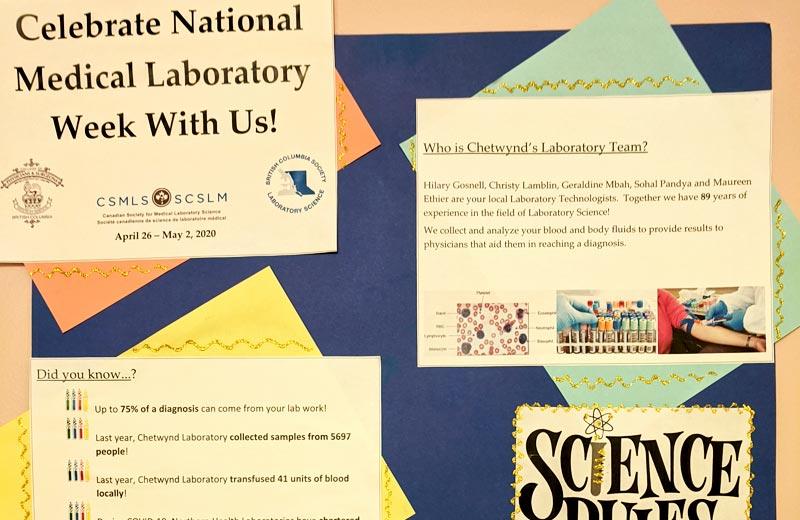From April 26 to May 2, help us celebrate the Canadian Society for Medical Laboratory Science’s Medical Laboratory Week!
You might be asking yourself, "What does a medical laboratory team do?" In the simplest of terms, medical laboratory technologists, or "med lab techs", collect and analyze blood and body fluids, then provide results to physicians to help them reach a diagnosis. In fact, 75% of a diagnosis can come from lab work. They also use, maintain, and repair high-tech analyzers. Because of the detailed nature of their work and the impact it has on a person’s health, quality control, precision, and accuracy are critical.
Northern Health has labs in facilities across our region, including in Chetwynd (approximate population: 2,600 plus transient workers) where a team of five people collected 5,697 samples from people and transfused 41 units of blood last year.
Chief Technologist Hilary Gosnell is thriving in the small town setting.
"I love being a rural laboratory technologist," says Hilary. "I get to know my patients, I get to work with other healthcare team members closely to provide those patients with care, and I get to see the positive outcomes of the work that we do."
The Chetwynd lab does a variety of tests:
- Hematology – Testing blood for anemia, infection, and leukemia or testing fluids collected from lungs, joints, abdomens, or spinal fluid for signs of infection and malignancy.
- Chemistry – Analyzing the fluid portion of blood to check things like blood sugar for diabetes, cholesterol, and liver and kidney function. Also, tests for heart attack, lung function, stroke, blood clots, and congestive heart failure.
- Coagulation – Testing to monitor blood thinner levels, and check for basic bleeding disorders.
- Urinalysis – Testing urine to look for signs of infection, kidney stones, and malignant cells.
- Plus, they collect just about anything and find a way to send it out for testing!
Larger locations can include additional departments like microbiology and histology, more volume, and an even faster pace, but Hilary is happy in Chetwynd.
"Working in a larger center can also be very exciting", says Hilary, "but there’s just something about the visibility of our profession to our patients and health care team members that makes working in rural and remote areas so much fun!"
During COVID-19, Northern Health laboratories are going the extra mile to help slow the spread of the disease, including arranging as-needed air transport from remote communities to speed up sample turnaround times and to guarantee continuous access to blood deliveries from Canadian Blood Services.
For more information on the medical laboratories and the med lab tech role, visit We Are Lab.














Comments